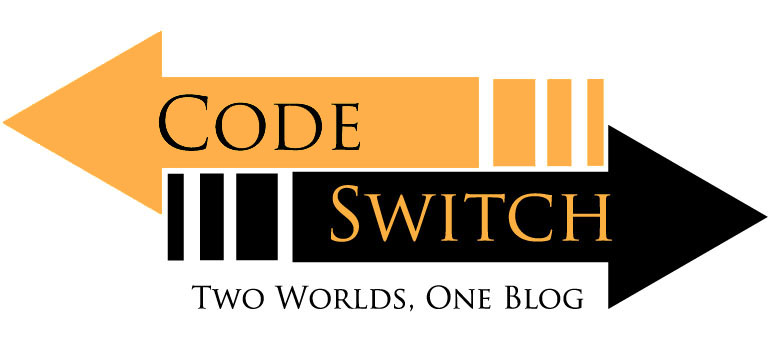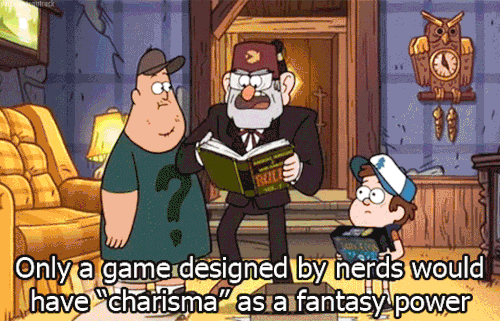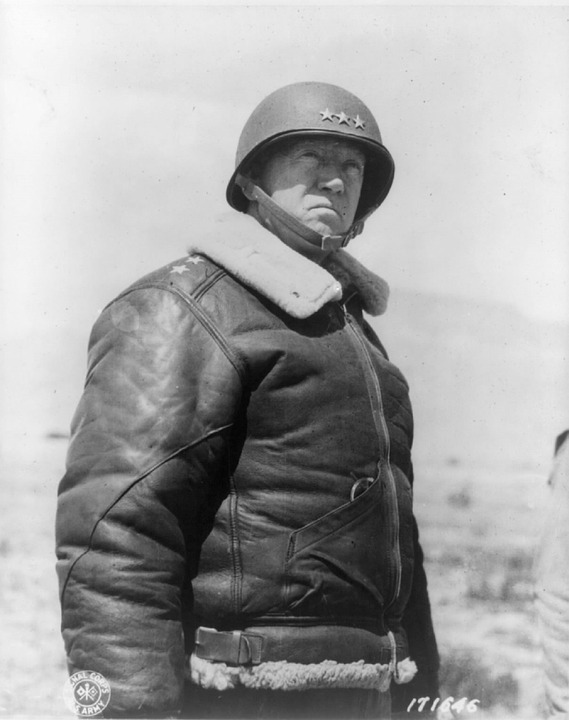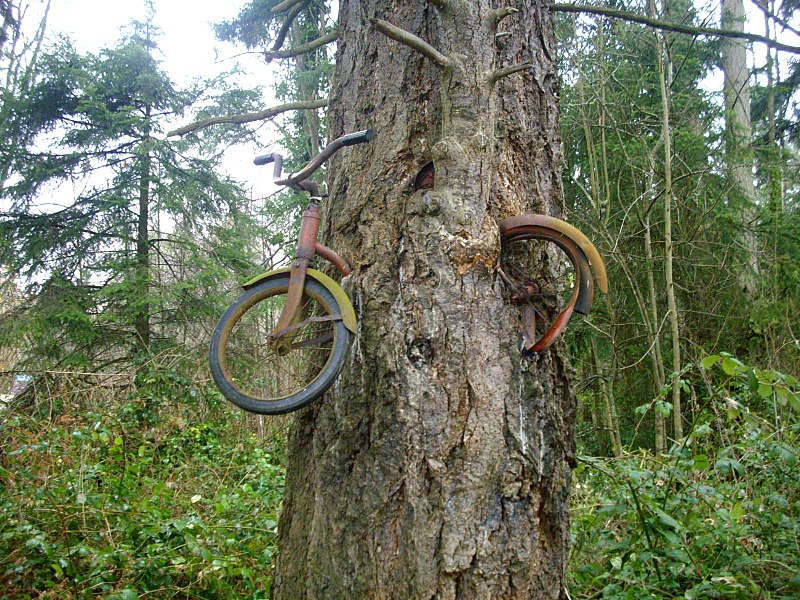Hi, my name is James and welcome to Code/Switch. Today I want to talk about an attribute. Not cunning, guile, or bravery, I’m talking 3D6 drop the lowest attribute. The attribute in question is Charisma and I want to explore what quantifying Charisma means for the worlds of Pathfinder and Starfinder.
What is Charisma?
Google tells me Charisma is “compelling attractiveness or charm that can inspire devotion in others.” Charisma as an attribute in Pathfinder and in Starfinder as “a measure of a character’s personality, personal magnetism, ability to lead, and appearance.” What a complicated attribute! Intelligence is just logic and reasoning, strength is just lifting! Charisma has the unenviable job of grading your intrinsic personal and societal impact. It has to figure out if you’re still cool even though you smell like tuna all the time.
Since Charisma is an attribute, it’s used as a modifier for player races. Dwarves and Shirren have negative species Charisma modifier while Lashunta and Gnomes have positive species Charisma modifiers. It’s this assignment of Charisma that I want to chew on a bit in today’s Code/Switch, is it fair to award or penalize entire species on Charisma?
Who Even Assigns a Species-wide Modifier?
I mean, the designers, but it’s an interesting question. In Pathfinders Golarion, why do the Gnomish and Dwarven species have opposing Charisma adjustments? Gnomes are portrayed as quirky, plucky optimists while dwarves tend to be shown as gruff, task focused, and stern. Does Golarion itself value gnomish traits more than Dwarven ones? Probably not, but you know who does? Humans. Not, every human mind you, but general humanity. Speaking as a human I’d like to see a Dwarfs traits in a soldier, disciplinarian, or coach, but on the whole I’d prefer to grab a drink with the Gnome. How humans view a species in Pathfinder determines its Charisma adjustment, those with more relatable personality traits tend to get positives, while those with conflicting personality traits get a negative. Humans enjoy Catfolks social nature but chaff at the practical joke loving Vanara.
Starfinder has a similar justification for positive or negative assignments of attributes. You can even read these justifications in the “Playing a Lasthuna/Android” sidebox that’s in the Core Rulebook. It’s a great reuse of an asset from Inner Sea Races. Starfinder itself seems to be trying to minimize Humano-centric thinking, so the reference points seem to be taken from a “Family Feud” style survey of the galaxy. Androids have a negative Charisma modifier due to their logic driven decision making along with the difficulties other species have reading their expressions and body language. Lashunta have a positive charisma modifier due to a pervasive natural force of presence, combined with a species-wide split in boisterous and calming personalities. If you want a friend there’s probably a Lashunta that fits your temperament.
Implications of a Charisma Adjustment
There are two big concerns with mechanically penalizing or rewarding a species an attribute that convey personality. The first is “Does this assessment hold true all the time, even in same company?” and the second is “Why does Humanity’s/The Galaxies view of your species make you a better/worse [insert class]?”
Do Dwarves enjoy the company of others species more than other Dwarves? I mean, the average human has a higher personal affability than the average Dwarf. We all know this is phooey. This answers that question of if the acceptability of their personality traits is always true, which it isn’t. Digging a bit deeper, there’s other species that find Dwarven personality traits agreeable; Oreads and (according to the Core Rulebook) some Humans. God, Humans are the worst.
A Lashunta can rock the Envoy class like no other. Its positive Charisma modifier combined with its flexible attributes allow Lashunta’s to take the Charisma focused Envoy class to its apex. On the other hand the Dwarven Sorcerer is struggling to keep up with its spellcasting compatriots. Golarion has determined that you just don’t have the personal gravity to cast a Gravity Well spell without working harder than your non-Dwarven peers.
Charisma itself isn’t a static attribute in people. George Patton was a charismatic general, likely a less charismatic go-go dancer. He’s the same person whether in boots or thigh-highs but his force of personality wouldn’t extend to stopping his dancer number from being awkward to all in attendance. If that optimum Lashunta Envoy does a show for a group of androids, does that Lashunta’s ability to inspire work if they can’t gauge the crowds reaction? Would their ability to inspire skyrocket if playing for an incredibly empathetic hive-mind species? We can argue all day if it would or wouldn’t but the answer isn’t what’s important, it’s that Charisma is relative. Relative Charisma is fine up until it messes with your spells per day. This leaves us with the unenviable question we have to answer, how would we change interactions to reflect this?
The easy part is fixing social interactions. We can look in the rulebooks to see each species relationship to each other and assign bonuses or penalties to reduce the impact of the Charisma attribute. Class balance is a bigger challenge. The attribute modifiers are printed with class balances as well as flavor in mind, and to ignore the class balance of a given species is playing with game balance fueled fire. I know I don’t want to do that.
If you have any good ideas for fixing class balance around Charisma modifiers, or just have a fun story about Charisma from your games, drop me a line in our Discord or in the comments below.







Ah, Charisma. The stat that’s either the centerpiece to your build or the dead weight that’s worth dumping into the ocean.
When it comes to the Sorcerer in particular, a lot of races have benefits to make up for it. See Oreads, Ifrits, Sylphs, and Undines when it comes to Sorcerers with their associated elemental bloodline. But when you’re not dealing with that? Consider a class shift.
Dwarves don’t make good Sorcerers? Yes they do! The Empyreal bloodline lets you use Wisdom, which turns your stat line into an alarmingly good one! If that doesn’t do it for you, consider keeping the flavor but changing the class: Wizard works, since Dorfs come pre-packaged with beards. Half of the Psychic play styles emphasize Wisdom as a secondary stat. Heck, there are even some Druid and Cleric builds that can maintain a somewhat wizardly feel.
Pathfinder balance is all over the place at times, sure, but the benefit from such an expansive system is that a bit of digging will net you a solution to whatever mechanic problems you’re having.
…as for Starfinder? It’s a younger game, a simpler game. Solarions are alright so long as you work a bit harder than anyone else (Good luck in space battles), Envoys are pretty awesome from what I’ve seen, and even Operatives can get involved with rocking Charisma skills with the best of them (if not BETTER).